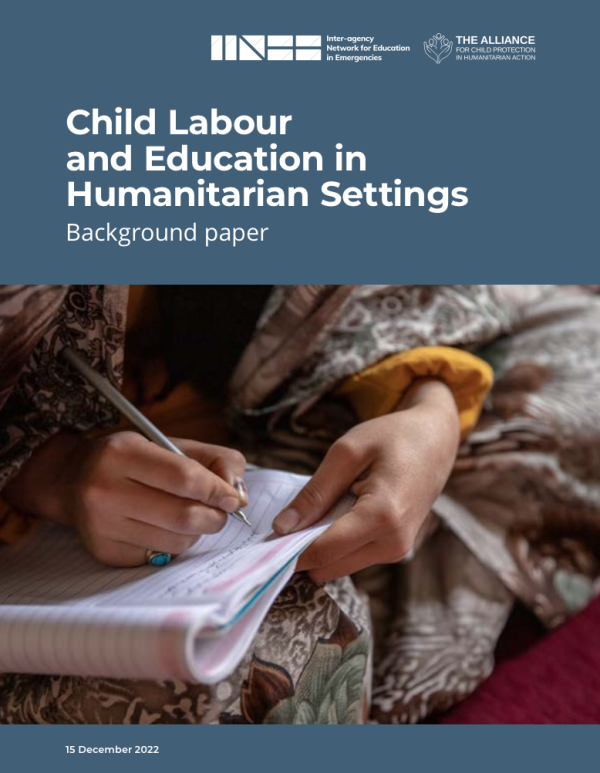
Background Paper | Child Labour and Education in Humanitarian Settings

In humanitarian situations, the risks of children being out of school and engaging in child labour are both significantly elevated, particularly for displaced, refugee, and migrant children. Hence, while education is critical for the successful prevention of and response to child labour in humanitarian crisis settings, the potentially negative effect of child labour on education participation must be countered by targeted interventions. This is best done through collaboration and integrated programming between education and other sectors, covering child protection, food security and livelihoods, and other essential services to meet humanitarian needs.
This paper proposes various actions, which have been adapted from the “Inter-Agency Toolkit: Preventing and responding to child labour in humanitarian action” and are structured around the INEE Minimum Standards for Education in Emergencies. They include key actions for community participation, coordination, analysis, equal access, protection and wellbeing, facilities and services, curricula, professional development and support, law and policy formation, and planning and implementation.
It is important to keep in mind that an effective response to child labour in humanitarian situations includes not just education, but rather a range of multi-sectoral interventions, such as child protection interventions (including case management, psychosocial support, access to justice and security, among others), health services, and socio-economic interventions such as livelihoods programmes, cash assistance, decent and lawful work opportunities for parents, and other workplace interventions. Such an approach requires proper inter-sectoral coordination among relevant stakeholders, as well as joint advocacy and knowledge management.
- 1123 views
